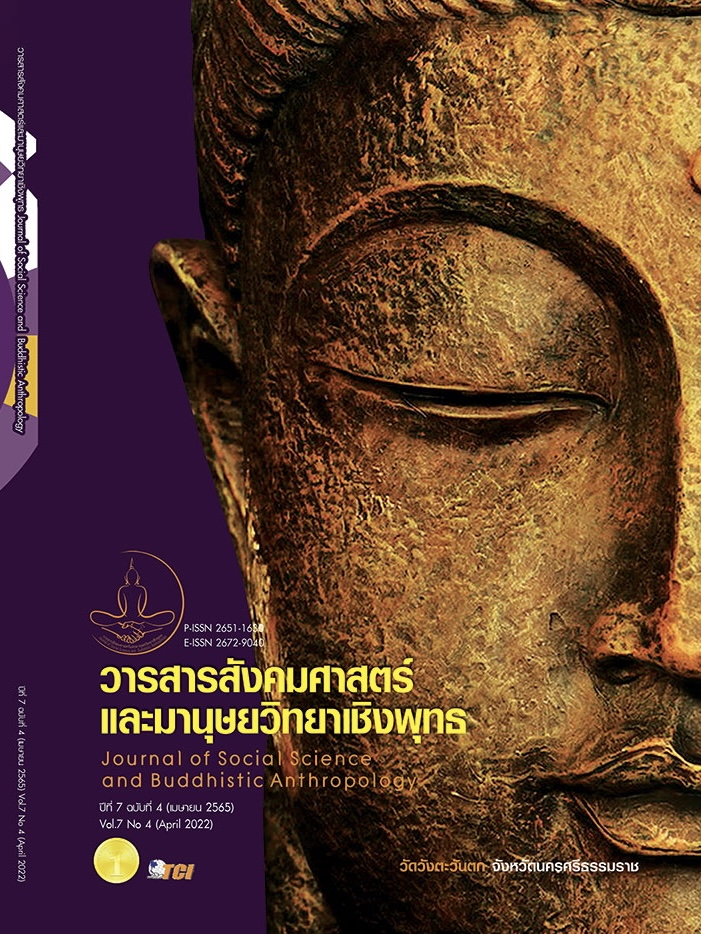THE STUDY ON THE PARTICIPATION PATTERN OF MEDIA ENTREPRENEURS TOWARD THE PUBLIC’S MEDIA LITERACY ENHANCEMENT
Keywords:
Media Literacy, Media Entrepreneur, FormationAbstract
The objectives of this research article were to investigate patterns toward the public’s media literacy enhancement by media entrepreneurs. In this action study, qualitative research tools were employed to collect data from key informants, including 15 media entrepreneurs and media specialists, and 27 stage workshops with the total number of 162. The data obtained were analyzed and presented descriptively. The findings suggested that the patterns of media literacy formation by media entrepreneurs consist of 1) providing knowledge and enhancing media literacy which should be proceeded with media consumers in educational institutes and in forms of media literacy training programs for the targeted, 2) developing media consumers into active citizens along with constructing media citizens in order for these people to take part in protecting their freedom, to verify public information and to respect others’ opinions, 3) enhancing responsibilities of media entrepreneurs through incentive measures along with assigning duty indicators coupled with assessment system in order for the outcomes to be processed as tax reduction, 4) employing public media channels to produce media literacy programs, which, with freedom, must not be corruptible by financial incentives and political power, 5) enhancing self-monitoring among media entrepreneurs with media monitor or media watch through the consideration of committee consisting of media entrepreneurs, volunteers, media consumers, and academics, 6) direct financial supports from responsible bodies to produce media literacy programs.
References
พรทิพย์ เย็นจะบก. (2552). ถอดระหัสความคิดเพื่อการรู้เท่าทันสื่อ: คู่มือการเรียนรู้เท่าทันสื่อ. กรุงเทพมหานคร: ออฟเซ็ท ครีเอชั่น จำกัด.
เพ็ญพักตร์ เตียวสมบูรณ์กิจ. (2559). ความรู้เท่าทันสื่อของผู้ใช้สื่อโทรทัศน์ไทยภายใต้ภูมิทัศน์สื่อโทรทัศน์ที่เปลี่ยนไป. ใน ดุษฎีนิพนธ์นิเทศศาสตรดุษฎีบัณฑิต สาขาวิชานิเทศศาสตร์. มหาจุฬาลงกรณ์มหาวิทยาลัย.
อุลิชษา ครุฑะเสน. (2556). แนวทางการพัฒนากระบวนการเรียนรู้เท่าทันสื่อของแกนนำเยาวชน. วารสารวิชาการ Veridian E-Journal, 6(3), 276-285.
Buckingham, D. (1993). Children Talking Television: The Making of Television Literacy. London: Falmer Press.
Center for Media Studies. (2008). Conference Report: Setting Research Directions for Media Literacy and Health Education. Retrieved January 6, 2006, from http://www.mediastudies.rutgers.edu/ mh_conference/conf7012. pdf
Choi, M. (2016). A concept analysis of digital citizenship for democratic citizenship education in the internet age. Theory and Research in Social Education, 44(4), 1-43.
Christ, W. G. & Potter, W. J. (1998). Media literacy, media education, and the academy. Journal of Communication, 48(1), 5-15.
Kaialiisa. (2012). Media ecology: How media and new media influence life. Retrieved March 12, 2012, from http://kaialiisa.wordpress.com/media-ecology-how-media-and-new-media-influences-life/
Littlejohn, S. W. & Foss, K. A. (2008). Theories of human communication. Belmont, CA: Thomson/Wadsworth.
Potter, W. (2004). Theory of media literacy: A Cognitive approach. California USA, Sage Publications.
Thoman, E. & Jolls, T. (2003). Literacy For the 21st Century: An Overview & Orientation Guide to Media Literacy Education. Retrieved August 6, 2015, from
http://www.medialit.org/sites/default/ files/01_MLKorientation.pdf
UNESCO. (2013). Global Media and Information Literacy Assessment Framework: country readiness and competencies. Paris: United Nations Educational, Scientific and Cultural Organization (UNESCO).
Downloads
Published
How to Cite
Issue
Section
License
Copyright (c) 2022 Journal of Social Science and Buddhistic Anthropology

This work is licensed under a Creative Commons Attribution-NonCommercial-NoDerivatives 4.0 International License.









